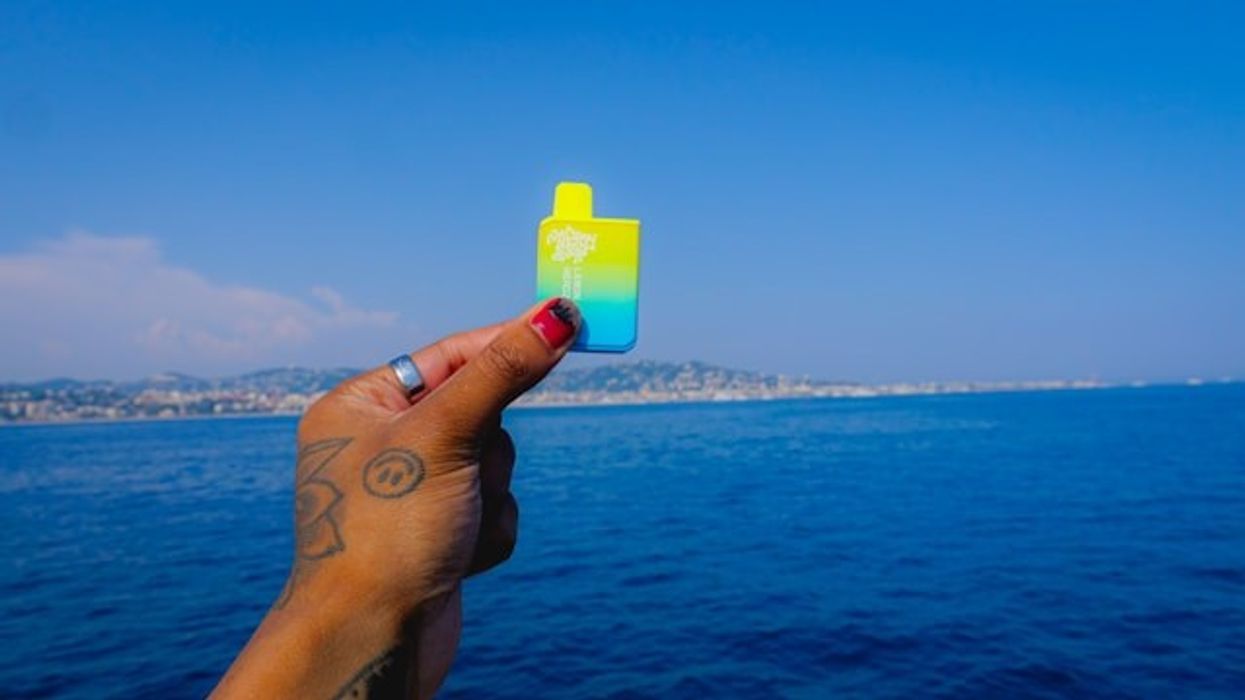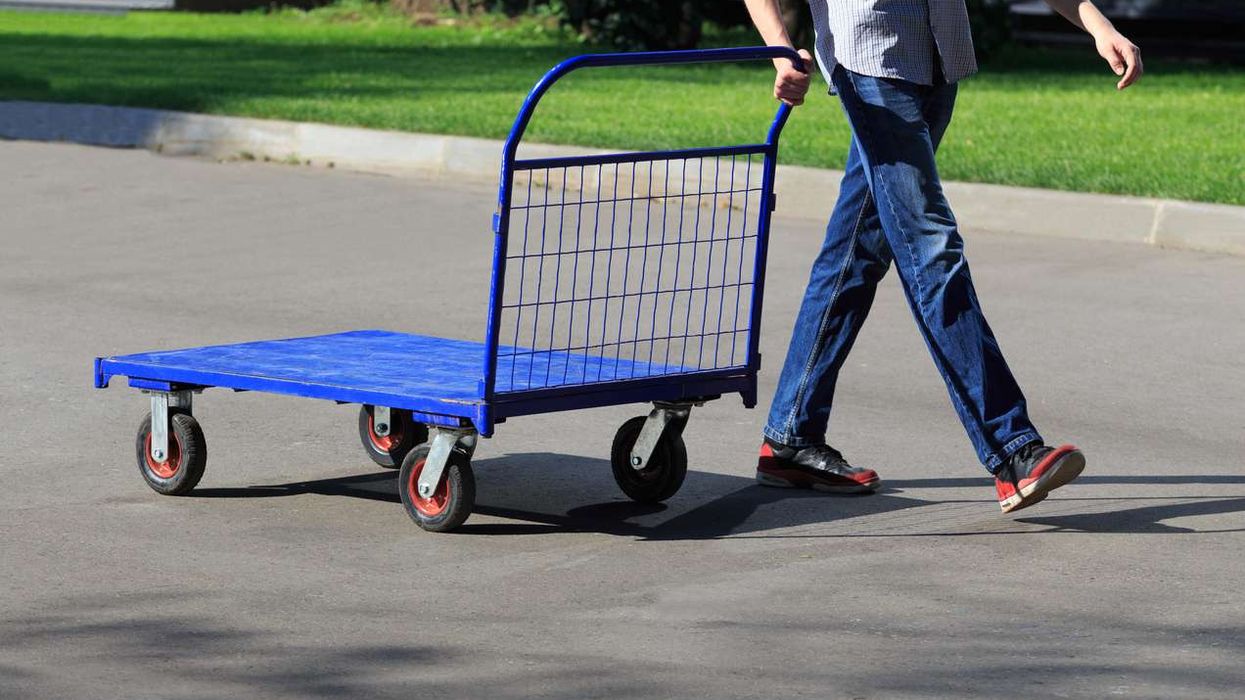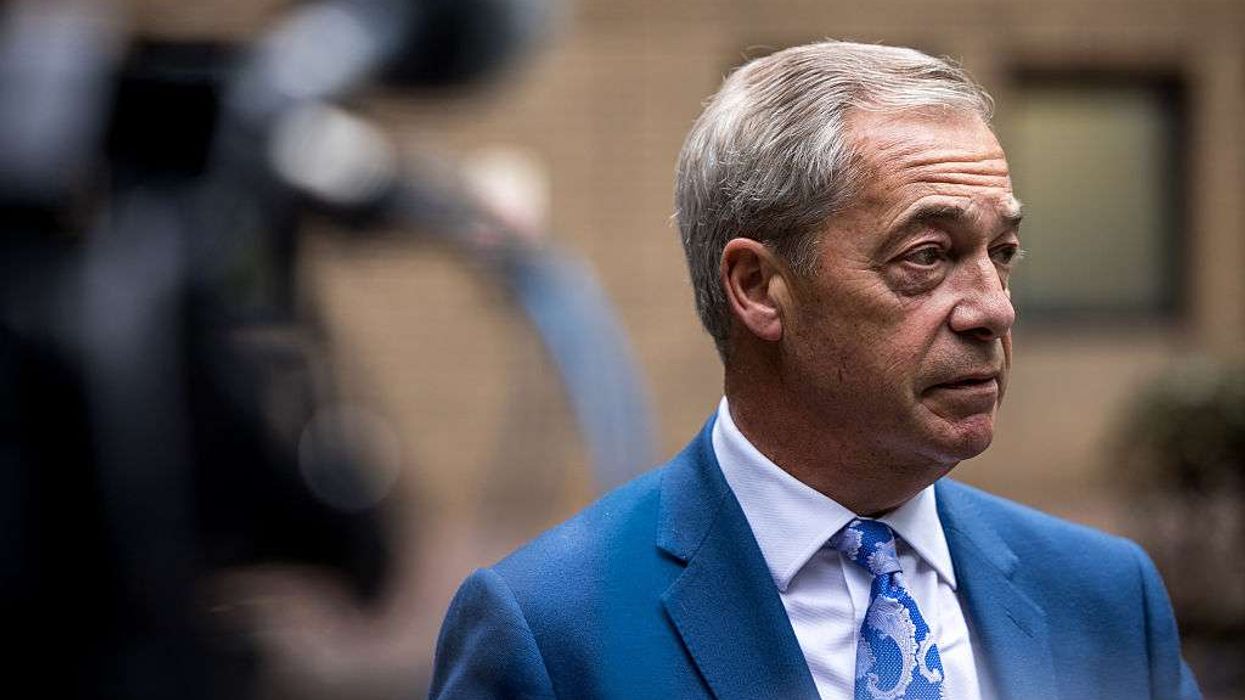Produced in association with UK Government
TEAMWORK HAS BEEN VITAL IN PROJECTS SET UP TO TACKLE THE VIRUS
AS BRITAIN eases lockdown measures, an army of troops, scientists, diplomats and civil servants – among others – are working to help people through the pandemic and ensure that the country gets back on its feet, gradually and in a safe manner.
Offices, schools and non-essential shops are set to reopen this month, while thousands of Britons stuck abroad have made their way back home on repatriation flights as countries all over the world imposed a lockdown to stop the transmission of the coronavirus.
In the UK, military reservists have also been mobilised as part of the Covid Support Force. One of them is Major Dave Richmond, who worked to make Headley Court, the site of the former military rehabilitation centre in Epsom, Surrey, fit for use by the local NHS trust.
Released from his role on the Tideway Project by his employer Costain, Major Richmond’s goal was to transform a decommissioned site into something that the NHS could utilise to provide suitable care – all in three weeks. Despite the challenges, the 130-bed hospital was ready on schedule, and will eventually be able to look after 330 patients.
Major Richmond said, “This has been a huge achievement which I was privileged to be part of. There was a huge pool of talented people involved with this project to make this happen in a very short time frame.”
After handing Headley Court over to the Trust, he was re-assigned by the NHS to support the planning of additional testing locations and the supply of PPE for the southeast. Nearly 4,000 armed forces personnel have been deployed to provide medical and logistical support.
In just a week, the military rapidly put together 92 Mobile Testing Units, with each unit able to test approximately 300 people per day. The military is also working with drive-through testing sites to ensure that the government can rapidly increase the number of tests carried out daily. Military planners are also collaborating with local authorities and emergency services as they respond to the coronavirus outbreak.
A new Covid Aviation Task Force was set up as part of the government’s response to the pandemic. This includes two RAF Chinook helicopters at RAF Odiham and one Army Air Corps Wildcat at RNAS Yeovilton on standby to cover southern England; two RAF Puma helicopters in Kinloss Barracks to assist the NHS in Scotland and northern England; and two Royal Navy Merlins on standby at RNAS Culdrose to support southern England, the Channel Islands and the Isles of Scilly.
On the Isle of Arran, off the west coast of Scotland, a dramatic mercy mission took place in the early weeks of the pandemic outbreak. A critically ill patient, suspected of having the virus, needed an urgent transfer to the University Hospital Crosshouse in Kilmarnock, on the mainland. A call was made to the barracks at Kinloss, where Puma helicopters are stationed as part of the Aviation Taskforce.
Having received the call at 1am, the crew donned protective gear and took to the skies. On Arran, they met the emergency medical care team.
Squadron Leader Johnny Longland later reflected on a job well done: “Just over three hours after the crew received the call, the patient travelled 162 nautical miles and was in the Intensive Care Unit. The training that we conducted with emergency medical teams across Scotland ensured that… we were all ready for a quick and
smooth transfer.”
In addition, working with specialists from Boots Pharmacists, the armed forces have trained testing personnel, while also helping to distribute PPE (personal protective equipment) to NHS trusts and organisations across the UK.
Between February 22 and May 8, armed forces personnel helped to deliver over 1.18 billion items of PPE to NHS staff on the frontlines in England. This includes 158 million masks, 184 million aprons, 2.3 million gowns and 689 million gloves. Tens of millions more PPE items have also been delivered to NHS trusts and organisations up and down the country.
Nearly 400 personnel have been mobilised to help support ambulance services across the UK. In most cases, the troops will not be providing paramedic care. However, as they have all been trained in first-aid and trauma, they can support ambulance crews where required. Since the outbreak of the pandemic, countries around the world imposed lockdown measures which meant tourists could not leave and return home.
Britain announced 142 special government charter flights from 27 different countries and territories to bring stranded Britons back. Up to £75 million has been made available for repatriation flights to priority countries, focused on helping the most vulnerable travellers. The countries with the greatest numbers of British travellers returning on government charter flights include more than 13,500 British nationals from India on 58 flights since April 8; more than 4,000 British nationals on 19 flights from Pakistan since April 20 and around 1,600 British nationals from Bangladesh since April 21.
In one instance, staff in India masterminded a 60-hour, 1,700 mile-long trip involving five different drivers and crossing seven states, even receiving a police escort at one point, to make sure a British citizen could take one of the special return flights to the UK.
Nick Low, the British deputy high commissioner in Kolkata in India’s eastern West Bengal state, helped in the evacuation of Corinne Henderson, who was stuck in a remote village called Nongman, an eight-hour drive from Imphal, Manipur in northeast India. Her journey involved 60 hours on the road, covering a similar distance from London to Moscow, before she boarded a flight to UK, landing in Heathrow on May Day.
Low said: “A lot has been written about working round the clock. And sometimes you need to. Not just for Corinne but for the other seven British nationals who had put their trust in us.
“It was a journey that required help, both small and large, from many different people in many different places. And it was a journey that highlighted the importance of teamwork, perseverance, good local knowledge, good local contacts and a never-say-die attitude.”
Teamwork also came into play in Nepal where 109 British nationals were stranded at the time of the pandemic outbreak. A network of British Gurkhas in Nepal, based in Kathmandu, Pokhara and Dharan, used their local knowledge to help UK embassy staff map out where the British travellers were located. Over three weeks, the soldiers, embassy staff and local drivers travelled more than 4,000 miles through the Himalayas to reach the tourists, who were scattered across dozens of mountainous towns, villages and national parks.
Sergeant Prakash Gurung, of 29 Regiment, Royal Logistic Corps, rescued a British national from Manang, northwest Nepal, before driving the solo traveller nine and-a-half hours back to Kathmandu, to catch a charter flight organised by the Foreign and Commonwealth Office.
Sgt Gurung, who has completed three tours of Iraq, as well as serving in Afghanistan, the Middle East, Kenya and Germany, said: “I stepped up to volunteer because I thought it was a part of my job. Helping people in dire situations gives me a sense of satisfaction. The gratitude people expressed in messages has encouraged me to do
more of this sort of work.”
The UK’s ambassador to Nepal, Nicola Pollitt, said: “Getting British nationals home in such an unprecedented time is a huge challenge… We have been able to reunite more than 700 British travellers with their families in the UK, and that would not have been possible without the tireless work of our embassy and Gurkhas team.”
There is also a package of measures to support British nationals still waiting to return to the UK. It addresses financial issues, healthcare concerns and visa extensions, as well as loans for those who cannot afford flights to the UK after they have exhausted all other options. Last month, the government also launched a “test and trace” system in England, the latest weapon deployed in a battle to halt the coronavirus’s spread.
Under the system, a team of 25,000 tracers – supported by 20,000 testers and up to 7,000 clinicians – will text, email or call people who test positive for the virus and ask who they have been in close contact with. Anybody thought to be at risk of infection will have to self-isolate, even if they have no symptoms.
For those who test positive, a clinician will immediately ask them whom they have been in “close contact” with – who will then also be asked to self-isolate. Close contact in this case means being within two metres (six feet) of someone for 15 minutes, or within one metre face-to-face. The government aims to be able, initially, to trace the contacts of 10,000 people a day.
Britain has also played a vital role in the global response to the coronavirus, by pumping in funds to find a possible vaccine. Researchers at Oxford University, funded through CEPI (Coalition for Epidemic Preparedness Innovations), are now progressing to clinical trials with funding from the UK government’s Vaccines Taskforce – which is also funding a vaccine trial starting soon at Imperial College.
Through the Department for International Development (DFID) aid budget, the UK is the largest single contributor of any country to CEPI’s international efforts to find a vaccine. CEPI is backing nine potential vaccines.
Once a vaccine is found, delivering it globally will be the next challenge. To help that, the government has invested the equivalent of £330m a year for the next five years in Gavi, the global vaccine alliance that delivers vaccines in 68 of the poorest countries around the world.













